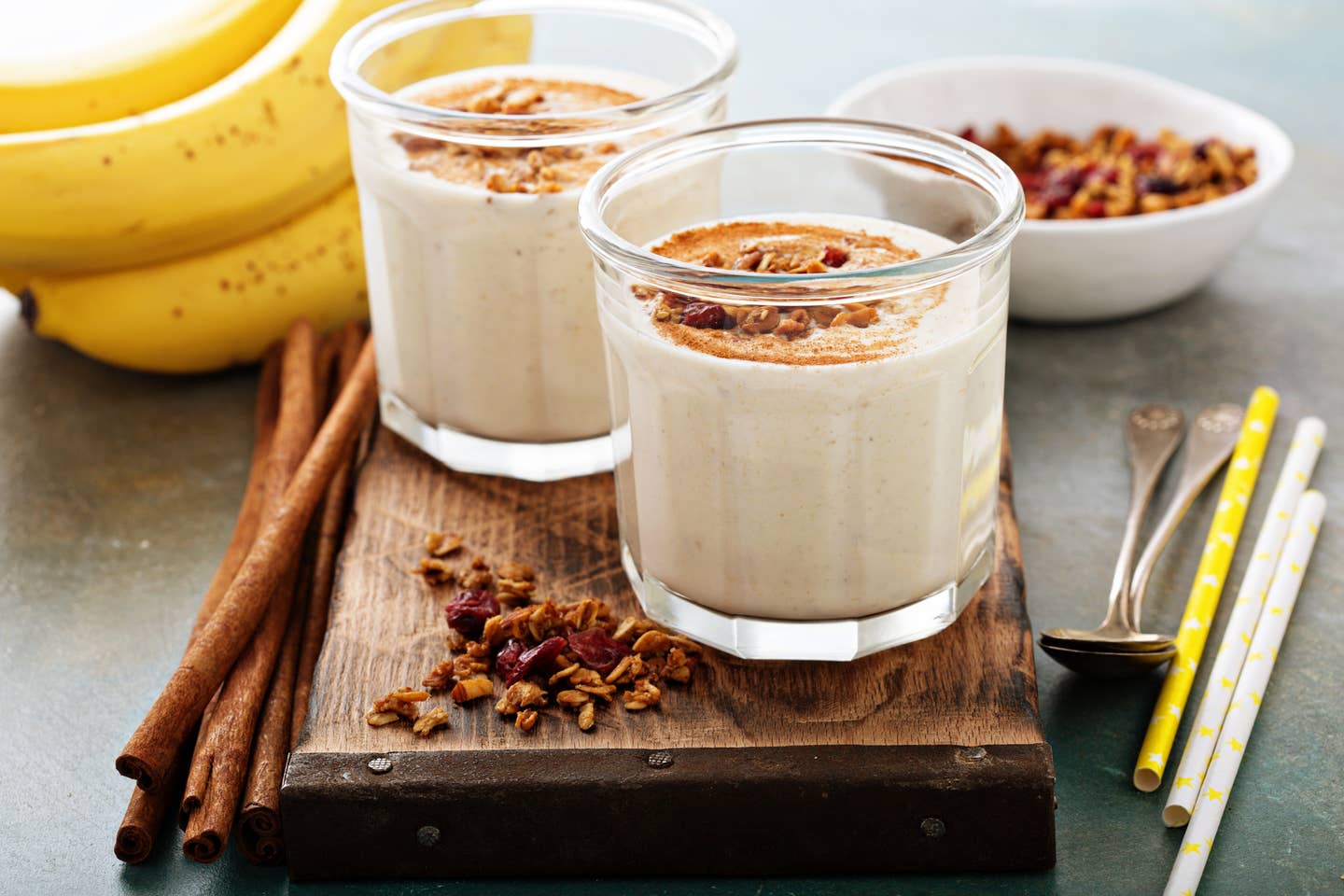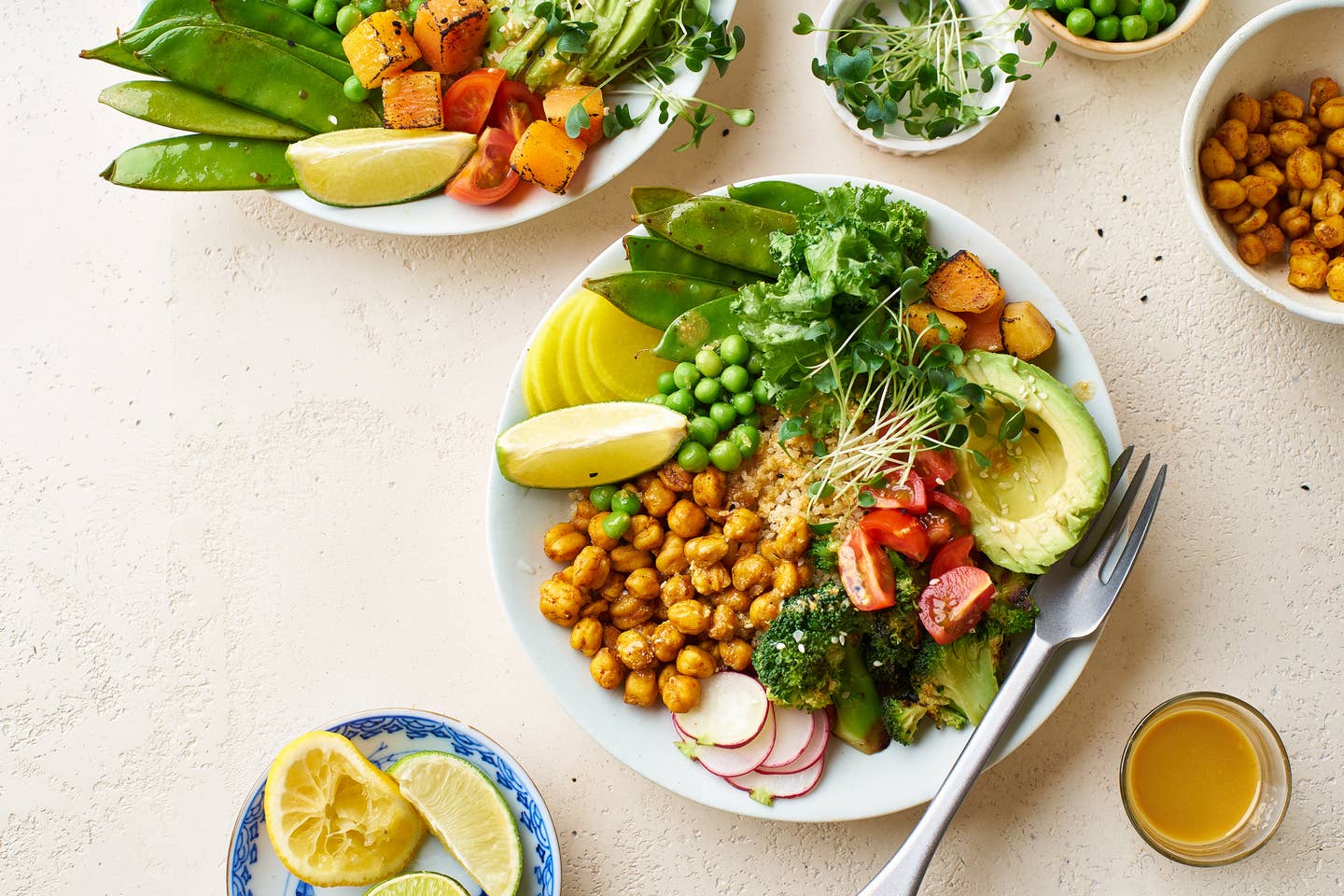
Do You Need to Add Protein Powder on a Vegan Diet? An Expert Explains
With so much confusion surrounding protein, and where to get it on a vegan or plant-based diet, a reader asked if he needs to supplement with protein powder? There is a new understanding that we may not need as much protein to be healthy as we once thought. Since getting the right amount of protein in your daily diet is such a hot topic, we decided to ask one of our Registered Dieticians, Natalie Rizzo, who helps her clients train for marathons and other sporting events, on a plant-based diet.
One thing to know is that there are more clean, tasty plant-based protein powders on the market than ever before, made of pea protein, hemp, and rice, as well as soy, and it's easy to find the right one for you if you decide you do need to get more protein than your daily food intake is providing. while on a plant-based diet. So, we asked Natalie Rizzo, a registered dietician, to answer their question.
Natalie Rizzo: I’ll cut right to the chase--you don’t “need” a protein powder to get enough protein on a plant-based diet. You can absolutely eat sufficient amounts of protein from plant-based foods, such as lentils, beans, and other legumes. That said, there are some instances when protein powders are helpful.
How Much Protein Do You Really Need Per Day?
Protein is the building block for muscles and organs; it’s part of what makes up your hair, skin, nails, and basically every organ in your body. Most notably, protein plays a role in muscle building and repair, which is why many people load up on protein after a tough workout. And studies tell us that protein plays a role in strengthening our immune systems.
The standard recommendation for protein consumption is 0.8 grams per kilogram of body weight or 0.36 grams per pound of body weight. For a 150-pound person, that’s about 54 grams of protein per day (less if you weigh less, more if you are active). People who engage in moderate to intense physical activity need about 0.5 to 1.0 grams of protein per pound of bodyweight. For a 150-pound athlete, that’s anywhere from 75 to 150 grams of protein per day.
For the right amount of protein for your size, activity level, age, and gender, check out this handy calculator.
I’m a “food first” type of Dietitian, so I always recommend that my clients turn to foods before supplements for their daily nutrients. Meeting protein requirements is absolutely doable on a plant-based diet, even without a protein powder. Eating a well-balanced diet with soy, legumes, beans, nuts, and veggies will help you meet your protein needs. (Mix and match from this list of plant-based proteins to achieve your daily recommended intake).
Getting a Nutrient From Food Helps You Reap the Benefit of More Nutrients
Not to mention that foods don’t contain just one single nutrient. Not only do you get protein from eating something like lentils, but you also take in beneficial fiber, iron, and other micronutrients at a fraction of the cost of protein powders.
All of this being said, I understand the benefits of protein powders—they are a convenient way to ensure protein consumption. Taking in 20 grams of protein in one single glass puts your mind at ease. And for some people who are extremely active, it’s difficult to eat enough food to satisfy protein needs. I have one client who is 6’4”, vegan, trains for triathlons, and needs to eat about 4,000 calories per day. We’ve worked together to safely incorporate protein powders into his fueling routine.
What to Look For in a Protein Powder
But the key thing to remember is that protein powders are a supplement, so they are meant to “supplement” the diet. If you’re eating a junky diet and you only get your protein from powders, that’s not a healthy way to live. Also, supplements are not regulated by the Food & Drug Administration (FDA), meaning that it’s up to the manufacturers to test and ensure the safety of their products. Some supplements have been found to be something other than what it says on the label. To avoid buying a protein powder with unwanted ingredients, look for the Certified for Sport seal from NSF International. This label means that the powder has been 3rd party tested to ensure that you’re getting what’s on the label.
The bottom line is to try to get your protein from food, but feel free to include a protein powder from time-to-time if they are helpful to you.
Natalie Rizzo, MS, RD is an NYC-based Registered Dietitian, food and nutrition writer, and national speaker. She has a Master’s in Nutrition and Exercise Physiology from Columbia University, and she has been a vegetarian for close to a decade.
More From The Beet






